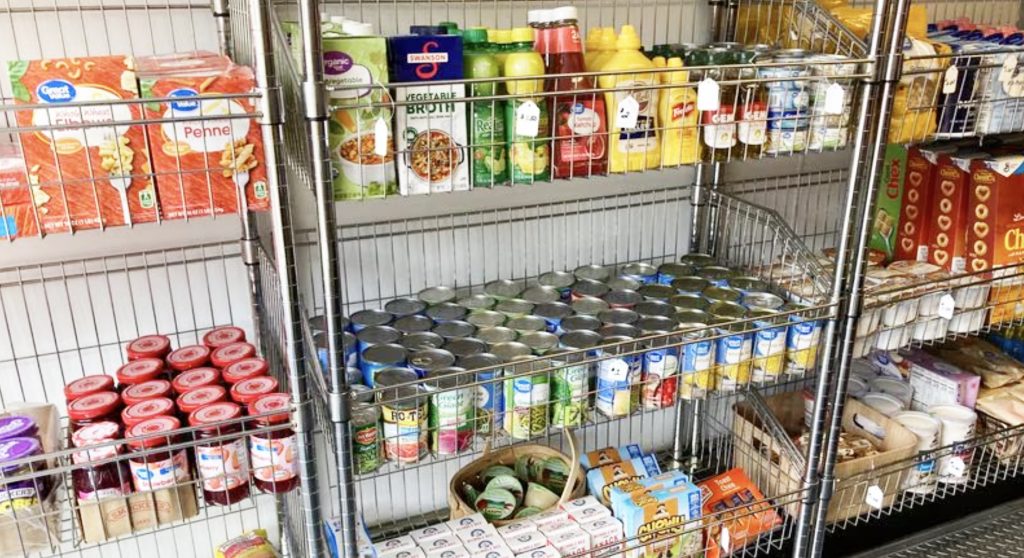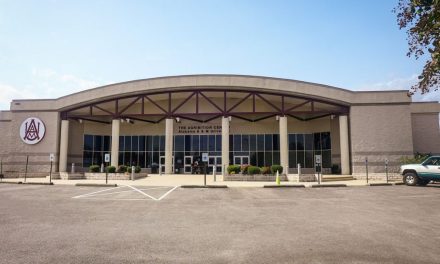By Amy Yurkanin
The administrator of the federal department in charge of Medicare and Medicaid visited Birmingham Thursday to find out how communities are working to improve the health of their most vulnerable citizens.
Chiquita Brooks-LaSure, the administrator for the Centers for Medicare and Medicaid Services, toured two buses operated as part of UAB”s Live HealthSmart Alabama program. One of the trailers contained a mobile marketplace where people can buy fresh produce and healthy foods. The other held a mobile doctor’s office where patients can get screenings and care without an appointment.
Live HealthSmart Alabama also includes efforts to improve neighborhood infrastructure to make it safer for people to exercise outside and walk to schools and parks. Officials at UAB launched the program four years ago as part of an effort to improve the health of residents, who suffer from some of the nation’s highest rates of cardiovascular disease and diabetes.
“What we’re seeing in health care, in particular, is how important primary care is. How important preventive care is,” Brooks-LaSure said. “People only get those services if they have these established relationships. So that’s the other thing that really stood out to me, the importance of going to where people need care and developing those trusted relationships with the providers.”
UAB President Ray Watts described Lived HealthSmart Alabama as a “grand challenge.” For years, rankings of physical and mental health have consistently placed Alabama at the bottom. Four years ago, the university community came together with the goal of improving those rankings, he said. UAB contributes $1 million a year.
“The goal is to improve the health metrics of the citizens of Alabama in major chronic diseases like high blood pressure, heart disease, stroke, diabetes,” Watts said. “And we rank unfortunately in the lower forties in those areas. And so the goal is over a decade, by 2030, to move us into the low to mid-thirties.”
The program targeted four neighborhoods in Birmingham: Kingston, Bush Hills, East Lake and Titusville. Corporate partners that include construction companies and Alabama Power helped improve lighting and park facilities. Medical students and engineering students have also participated in projects to improve neighborhood infrastructure and provide health care in the communities.
The mobile clinic accepts walk-in patients and can provide screenings for cholesterol, blood pressure and diabetes. It can also connect patients to primary care at Cooper Green Mercy Health Services, which provides low-cost and free care to qualifying residents of Birmingham and Jefferson County. Many people don’t know they can receive care at the clinic, UAB officials said.
UAB helps the county run Cooper Green. A new facility for the clinic is under construction.
Initially the Live HealthSmart Alabama program sought to educate people about healthy behaviors, encouraging people to exercise and eat fresh fruits and vegetables. However, the scope has widened since UAB began working in the neighborhoods and saw some of the economic and educational barriers to good health, Watts said.
In addition to bringing the mobile market and clinics to the neighborhoods, Watts said partners in the project are also discussing ways to reduce blight and improve educational outcomes. New goals include improving third grade reading proficiency, which is linked to higher rates of educational attainment.
Watts said the residents of the neighborhood told UAB staff what they needed to improve their health. Now he said the program is looking to expand.
“The goal is to take it to other parts of Alabama,” Watts said. “And to challenge those cities, towns, counties, universities, hospitals and corporate partners to join together to do it in their neighborhood, because that’s the only way we’re going to reach all of Alabama.”











